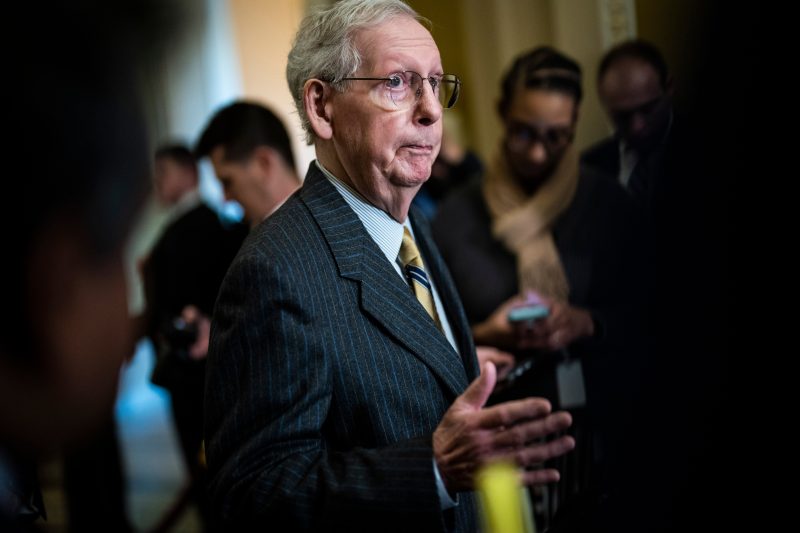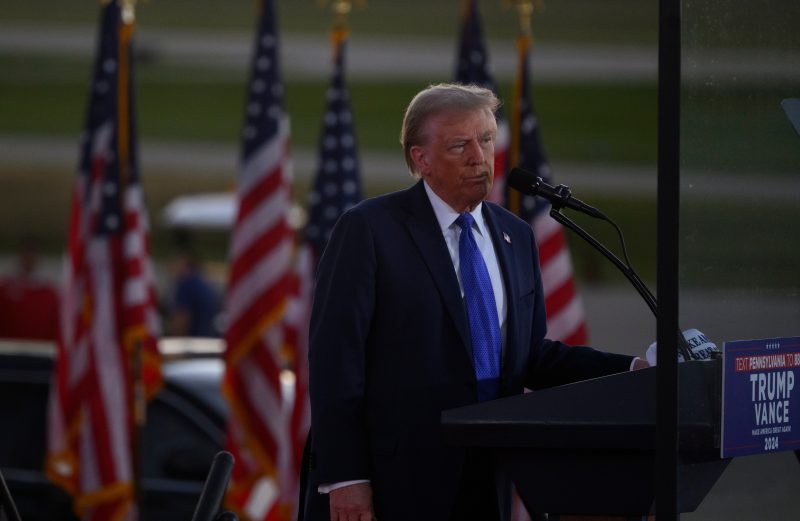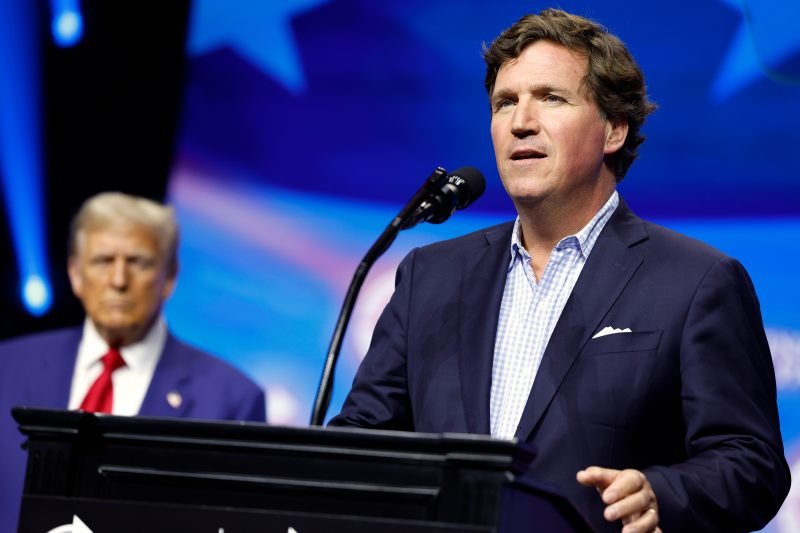McConnell, Republican lawmakers sign Supreme Court brief on keeping Trump on ballot

Nearly 180 congressional Republicans signed on to an amicus brief to the U.S. Supreme Court in support of Donald Trump’s legal battle to remain on the primary election ballot in Colorado. The long list of signatories to the brief includes someone who has largely steered clear of the 2024 race and who previously said the former president is responsible for provoking the 2021 insurrection: Senate Minority Leader Mitch McConnell (R-Ky.).
The Supreme Court is scheduled to hold oral arguments on Feb. 8 in a case to decide whether Trump, the front-runner in the 2024 GOP presidential primary race, can appear on the ballot. Colorado’s state Supreme Court disqualified Trump from the ballot last month, finding that he engaged in an insurrection before and during the Jan. 6, 2021, attack on the U.S. Capitol. The decision marked the first time a court has ruled to keep a presidential candidate off the ballot under Section 3 of the 14th Amendment of the Constitution — a post-Civil War provision that bars insurrectionists from holding office.
The friend-of-the-court brief, which was filed on Thursday, argues that the Supreme Court should reverse the Colorado decision, saying the lower-court opinion “tramples the prerogatives of members of Congress.”
“The court below raced past numerous textual and structural limitations on Section 3, which are primarily designed to ensure that Congress controls the enforcement and (if necessary) removal of Section 3’s ‘disability’ on holding office,” the brief states. The signatories also argue that Colorado’s court “adopted a malleable and expansive view of ‘engage in insurrection,’ which will easily lead to widespread abuse of Section 3 against political opponents.”
The brief does not weigh in on whether the events of Jan. 6 were an “insurrection” — a term that’s central to Colorado’s court decision.
Led by Sen. Ted Cruz (Tex.) and House Majority Leader Steve Scalise (La.), a total of 179 Republican members of Congress signed on to the brief. The list of signatories does not include several moderate Republicans, nor does it include any of the House Republicans who hold seats won by Joe Biden in 2020.
The push to keep Trump on the ballot in Colorado could inform similar legal challenges to Trump’s ballot eligibility across several states. Some challenges have failed, but other efforts are pending. Maine’s top election official last month barred Trump from that state’s primary ballot, an order the former president has appealed. A Maine judge on Wednesday delayed ruling on the case, saying the Supreme Court needs to rule on the Colorado case first.
Notably, the brief’s list of signatories includes McConnell, who voted against convicting Trump during the Senate impeachment trial in 2021 on a charge that he incited a riot, arguing that Trump’s actions did not fit the narrow scope needed for conviction. But in a speech after his vote, McConnell said the former president was still “practically and morally responsible for provoking the events” on Jan. 6.
“Trump is still liable for everything he did while he was in office, as an ordinary citizen, unless the statute of limitations has run, still liable for everything he did while in office, didn’t get away with anything yet — yet,” McConnell said in February 2021. “We have a criminal justice system in this country. We have civil litigation. And former presidents are not immune from being held accountable by either one.”
McConnell also said Trump “did not act swiftly” to end the insurrection and “did not do his job.”
“Even after it was clear to any reasonable observer that Vice President Pence was in danger, even as the mob carrying Trump banners was beating cops and breaching perimeters, the president sent a further tweet attacking his vice president,” McConnell said. “Predictably and foreseeably under the circumstances, members of the mob seemed to interpret this as further inspiration to lawlessness and violence.”
McConnell did not immediately respond to a request for comment.
The new brief questions whether Trump was responsible for the violence that unfolded on Jan. 6, arguing that he “quickly” called for peace.
“The Colorado Supreme Court’s opinion so broadly interpreted ‘engage in’ that it sailed right past President Trump’s repeated statements to his supporters — both before the breach of the Capitol and after it was breached — telling them to act peacefully, and that he later told them via video to ‘go home now,’” the brief states. “It is hard to imagine an actual insurrectionist quickly asking for peace and encouraging disbandment. But once ‘engage in’ is defined so broadly, even significant countervailing evidence can simply be labeled as a ruse, as insufficient, or even as an implied recognition and praise of ongoing violence.”



